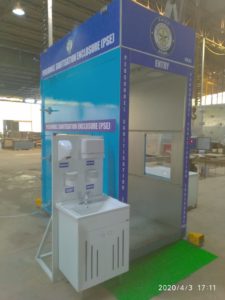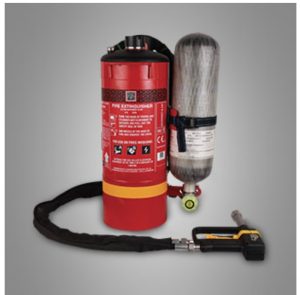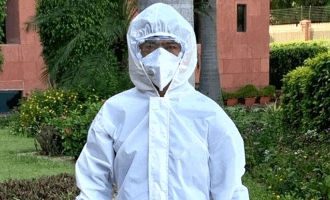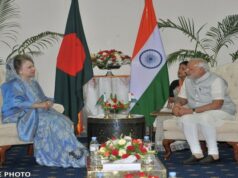NEW DELHI: As India fights the Chinese virus, it’s getting crucial support from the country’s premier R&D agency— Defence Research and Development Organisation (DRDO) in quickly developing some critical medical solutions. From Personal Protection Equipment (PPE) to multi-patient ventilators, DRDO has taken on the task of rolling out mass supply of critical medical items amid the clamour of inadequate supplies from medics.
The DRDO took a call in the first week of March 2020 to enhance efforts to create counter-measures to stop the spread of the viral disease in India. It started focusing on creating mass supply solutions for critical medical requirements using years of experience and available technology to deal with the COVID-19 pandemic. As of result, the DRDO has quickly developed some frontline low-cost, high volume equipment desperately needed in the ‘War against Corona’.
Submarine Technology To Develop Bodysuits (PPE)
 In a major milestone, the DRDO has developed a Personal Protective Equipment (PPE), popularly known as bodysuit, for frontline health workers and doctors. The suit is designed to prevent infection being transmitted to these personnel. The breakthrough was made at DRDO’s Gwalior laboratory for defence against CBRN (Chemical, Biological, Radiological and Nuclear) agents.
In a major milestone, the DRDO has developed a Personal Protective Equipment (PPE), popularly known as bodysuit, for frontline health workers and doctors. The suit is designed to prevent infection being transmitted to these personnel. The breakthrough was made at DRDO’s Gwalior laboratory for defence against CBRN (Chemical, Biological, Radiological and Nuclear) agents.
Earlier, DRDO had developed this bodysuit for medical and paramedical staff to manage and evacuate the causalities in the event of radiological emergencies, which right now is converted as a full-body suit to stop contamination. The suit is washable and has passed the ASTM International standards. The suit is widely tested by DRDO and other agencies and has been found adequate for the task. Scientists have used an adhesive which has its application in submarines to produce the bodysuit. The adhesive is a critical component in the suit as it seals off external air. Now, the industry is gearing up for mass production of the suits. At present, the production capacity of 7000 suits per day exists and efforts are on to ramp it up to 15000 suits. Each suit costs Rs 7,000.
Multi-Patient Ventilators
Ventilators are in high demand to combat the pandemic and are in short supply. India currently has only 30,000-40,000 ventilators. To mitigate the overwhelming demand for critical care equipment, the DRDO is working overtime to develop ‘Multi-patient ventilators’—each one can support four to five patients—are expected to be rolled out in a week.
The Society for Biomedical Technology (SBMT) programme of DRDO has been modified to cater to the current situation. It has been created by using existing technologies like breath regulators, pressure/flow sensors, etc. Around 5,000 ventilators will be produced in the first month and 10,000 subsequently. The DRDO has identified local alternatives to the supply of critical components. According to a statement issued by the government, Secretary, Pharmaceuticals has identified nine companies for design transfer. Each ventilator unit will cost around Rs 4 lakh. The market cost of a single ventilator is around Rs 3-4 lakh which supports only one patient.
Portable Fumigation Unit: Personnel Sanitisation Enclosure (PSE)
 The DRDO’s Vehicle Research Development Establishment (VRDE), Ahmednagar has developed a portable full-body disinfection chamber called Personal Sanitation Enclosure (PSE) to be used in hospitals, offices, malls and other establishments.
The DRDO’s Vehicle Research Development Establishment (VRDE), Ahmednagar has developed a portable full-body disinfection chamber called Personal Sanitation Enclosure (PSE) to be used in hospitals, offices, malls and other establishments.
According to DRDO, PSE is a walk-through enclosure, equipped with sanitiser and soap dispenser. It is designed to disinfect one person at a time. The decontamination starts using a foot pedal at the entry. On entering the chamber, an electrically operated pump creates a disinfectant mist of hypo sodium chloride. The mist spray is calibrated to operate for 25 seconds and stops automatically thereafter, indicating completion of the operation. Approximately 650 personnel can pass through the chamber for disinfection before a refill is required. The system has a see-through glass panel as sidewalls for monitoring and is fitted with lights for use at night.
Full Face Mask (FFM)
Similarly, the Research Centre Imarat (RCI), Hyderabad and Terminal Ballistics Research Laboratory (TBRL), Chandigarh have developed a face protection mask for health care professionals handling COVID-19 patients. It is lightweight so can be comfortably worn for long durations.
Portable Backpack Area Sanitisation Equipment
 In the continuing quest for developing indigenous solutions to combat the Coronavirus, DRDO has developed technologies for sanitising areas of different sizes. The Centre for Fire Explosive & Environment Safety (CFEES), Delhi developed portable sanitisation equipment for spraying decontamination solution consisting of one per cent Hypochlorite (HYPO) solution.
In the continuing quest for developing indigenous solutions to combat the Coronavirus, DRDO has developed technologies for sanitising areas of different sizes. The Centre for Fire Explosive & Environment Safety (CFEES), Delhi developed portable sanitisation equipment for spraying decontamination solution consisting of one per cent Hypochlorite (HYPO) solution.
These are spin-offs from technologies developed for fire suppression applications. The application areas can include hospital reception, doctors’ chambers, office spaces dealing with the general public, corridors, pathways, metro and railway stations, bus stations, etc. The equipment is being provided to Delhi Police for immediate use. These can be made available to other agencies with the help of industry partners.
Hand Sanitizers
The DRDO has also developed in-house sanitizers for government establishments to ensure smooth working of offices without the fear of catching an infection. It had produced the item in sizeable quantities and distributed to major offices and establishments in the national capital by the third week of March. Approximately, 4,000 litres of hand sanitizers have been provided to Indian Armed forces, Armed Forces Medical Corps, Defence Security Corps, 1,500 litres to Ministry of Defence, 300 litres to Parliament and 500 litres to various security establishments and high offices.
N99 Masks
The DRDO has also designed a five-layer N99 mask using nanotechnology mesh for a cost of Rs 70. Presently, the production capacity is 10,000 N99 masks per day. Material for these is being sourced from Ahmedabad Textile Industry Research Association, which already has large government orders for N95 masks.
DRDO Chairman Dr Satheesh Reddy said the organisation had reinvented itself by developing and sharing technologies free of cost with the industry for mass production of these critical medical equipment required in the country to combat the Coronavirus outbreak.





